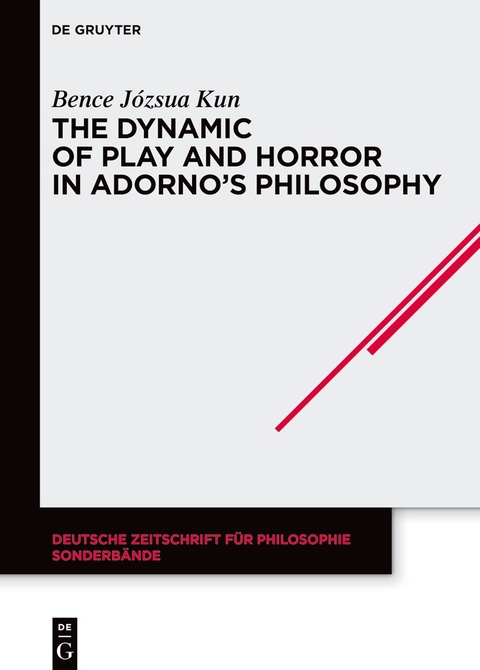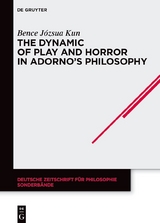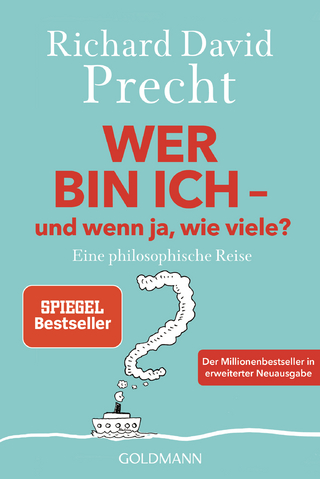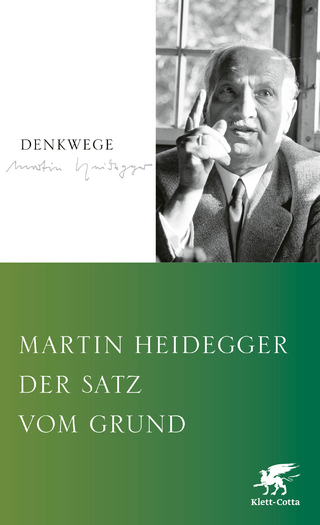The Dynamic of Play and Horror in Adorno's Philosophy
Long before Wittgenstein drew attention to its complexities, the concept of play had captured the interest of theorists for millennia. How do games contribute to our knowledge of the world? Wherein lies their universal appeal? Play is usually associated with a certain blitheness and buoyancy - could it nevertheless be argued that playfulness is not quite as innocent as it might seem?
Bence Kun draws on Adorno's writings to explore the relation between philosophical play (understood here as imaginative thought as well as experimental expression) and an experience of dread Adorno links to children's first encounter with death. By investigating his less familiar works, some of which have not yet been translated, Kun challenges the received view on Adorno's approach to metaphysics, the role of systematic inquiry and the modern condition. As he has Adorno say, the originary impression of shock at the heart of philosophical reflection can only be fully apprehended through an open-ended and defiantly creative intellectual practice.
lt;strong>Bence Józsua Kun, Budapest, Hungary.
| Erscheinungsdatum | 28.09.2023 |
|---|---|
| Reihe/Serie | Deutsche Zeitschrift für Philosophie / Sonderbände ; 48 |
| Verlagsort | Berlin/Boston |
| Sprache | englisch |
| Maße | 170 x 240 mm |
| Gewicht | 432 g |
| Themenwelt | Geisteswissenschaften ► Philosophie ► Metaphysik / Ontologie |
| Geisteswissenschaften ► Philosophie ► Philosophie der Neuzeit | |
| Schlagworte | Critical theory • Death • Games • Knowledge • Kritische Theorie • Spiele • Wissen |
| ISBN-10 | 3-11-126530-7 / 3111265307 |
| ISBN-13 | 978-3-11-126530-8 / 9783111265308 |
| Zustand | Neuware |
| Informationen gemäß Produktsicherheitsverordnung (GPSR) | |
| Haben Sie eine Frage zum Produkt? |
aus dem Bereich




